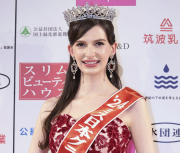
A recent ruling by a U.S. District Court in Washington, D.C. has established that artistic creations generated solely by artificial intelligence, devoid of human input, cannot be
granted copyright protection under United States law.
In her decision on Friday, U.S. District Judge Beryl Howell upheld the stance of the U.S. Copyright Office, which had previously rejected an application submitted by computer scientist Stephen Thaler on behalf of his autonomous system known as DABUS (Device for the Autonomous Bootstrapping of Unified Sentience). The Copyright Office's refusal follows a series of setbacks for Thaler in his attempts to secure U.S. patents for inventions attributed to DABUS.
The realm of generative AI has given rise to distinctive intellectual property challenges. Notably, the Copyright Office declined to grant copyright status to images produced via the AI system Midjourney, despite the artist's contention that the AI played a role in their creative process.
Emerging legal disputes also pertain to the utilization of copyrighted works for the training of generative AI systems without the authors' consent.
"We stand at the brink of uncharted territory in the realm of copyright, with artists incorporating AI into their creative toolkit," Judge Howell observed. She anticipates that this integration will prompt "complex questions" regarding copyright law. Nevertheless, she emphasized that the current case is less intricate.
Thaler had initially sought copyright protection in 2018 for a visual artwork titled "A Recent Entrance to Paradise," which he asserted was produced entirely by his AI system, free from any human intervention. The application was rejected last year by the Copyright Office, which insisted that copyrightable works must have a human origin.
Challenging this decision in a federal court, Thaler argued that the requirement of human authorship lacks a solid legal foundation. He contended that allowing AI-generated works to receive copyrights aligns with the constitutional aim of copyright law – to "promote the progress of science and useful arts."
In support of the Copyright Office's stance, Judge Howell affirmed that human authorship forms a foundational element of copyright, rooted in "centuries of settled understanding." Despite Thaler's disagreement with the verdict, he and his attorney, Ryan Abbott, have expressed their intention to appeal the decision. The Copyright Office has not yet commented on the matter. Photo by mikemacmarketing, Wikimedia commons.






































